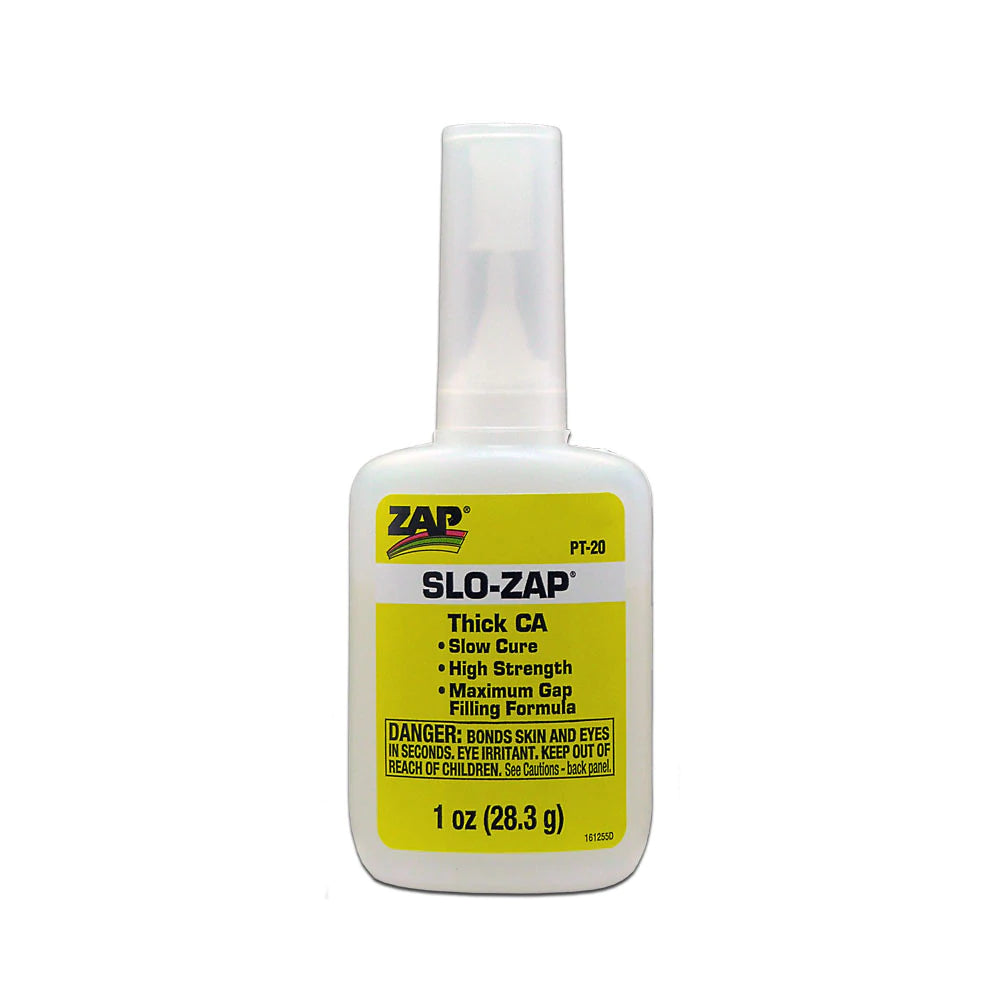Description
1 oz. (28.4ml) Slo-Zap CA- (each)
- VERY HIGH VISCOSITY FORMULA
- SUPER THICK AND SUPER STRONG
- ALLOWS PART POSITIONING FOR APPROXIMATELY 30 TO 40 SECONDS
- USE ZIP KICKER TO ACCELERATE CURE TIME
- AVAILABLE IN 2 SIZES
Uses:
SLO-ZAP CA Is called a thick formula. The thicker the formula, the slower the cure time, that’s why we call it SLO-ZAP. Although it is thick it is still a liquid and will flow. Penetration into porous materials is very minimal. SLO-ZAP is an excellent gap filler and provides extra time when positioning wood parts. In modeling its ideal for laminating wood parts and forming fillets. Because its thick, it will not run, it forms a very clean even fillet around all types of joints. The high cured strength means it works great on higher stress areas. This is a specialty glue and mostly used in modeling, wood working, antique furniture repair, and mold / pattern shops. Wood turners use this product as the final filler when repairing larger cracks. Furniture refinishers use this glue in conjunction with zip kicker to repair loose chair rungs, and mortis and tenon joints. Mold and pattern shops use it to fill in cracks and seams. Use it on fiberglass and fabric to partially fill in the weave and to bond the cloth to the substrate. When dry it produces a very hard surface.
Helpful Hints:
This glue is SLOW but STRONG!! Use it on harder types of wood. For maximum strength let SLO-ZAP cure on its own, best accomplished by providing some light to medium clamping pressure on the pieces to be joined. SLO-ZAP will set up faster when sprayed with kicker, the outside will cure immediately but still allow about 30 seconds to allow the inside to fully cure. To speed the cure time and still have a few seconds of positioning, spray ZIP KICKER on one part, let dry, apply SLO-ZAP to the other, then join the two parts. When fixing furniture joints, separate the parts if possible, treat the tenon or rung with ZIP KICKER, making sure not to get any on the other part, let the kicker dry, put SLO ZAP in the mating part and join the two together. When using on fiberglass cloth or fabric spread it across the material with an old playing card, business card, or a soft plastic spreader. For critical applications test sample joints for designed strength requirements.

